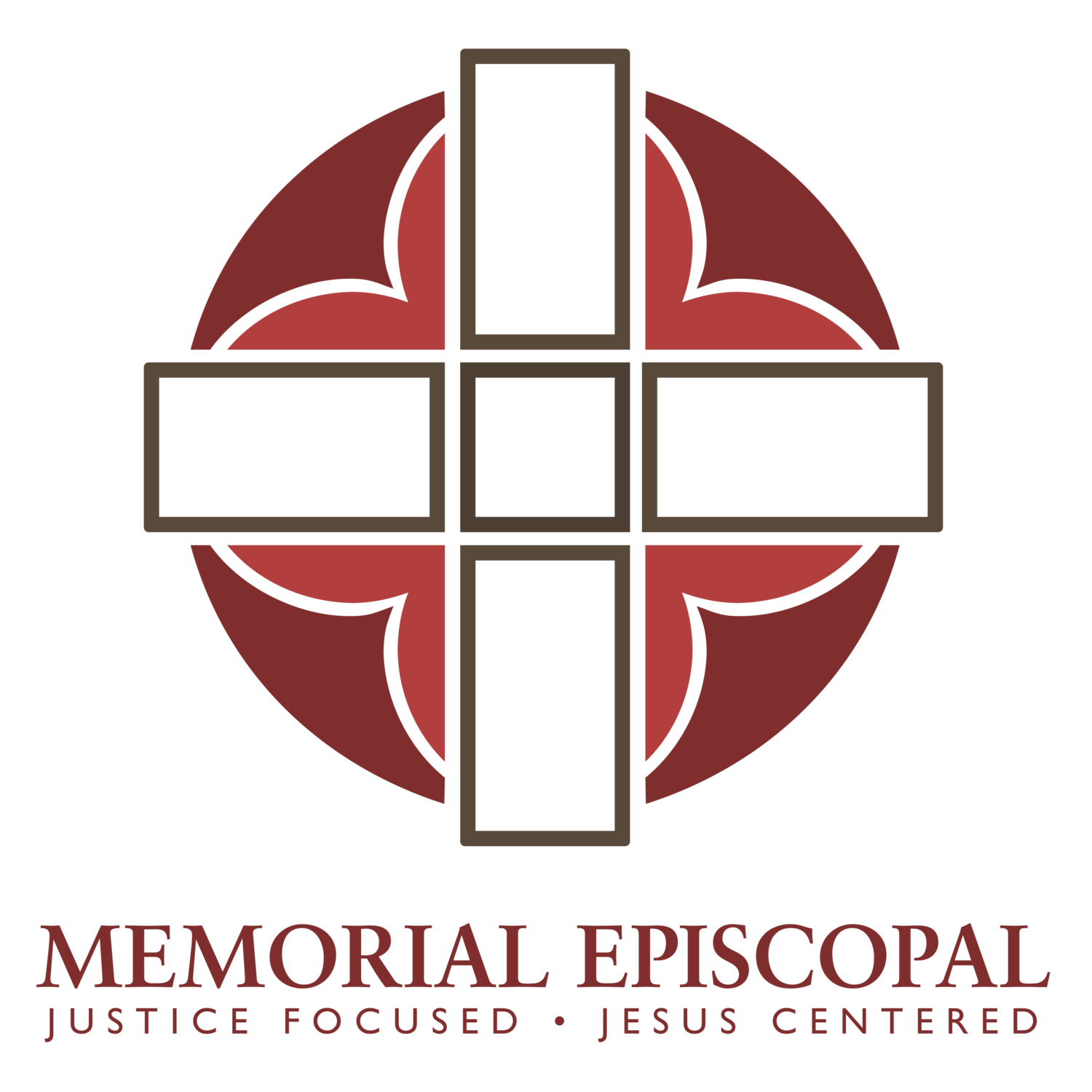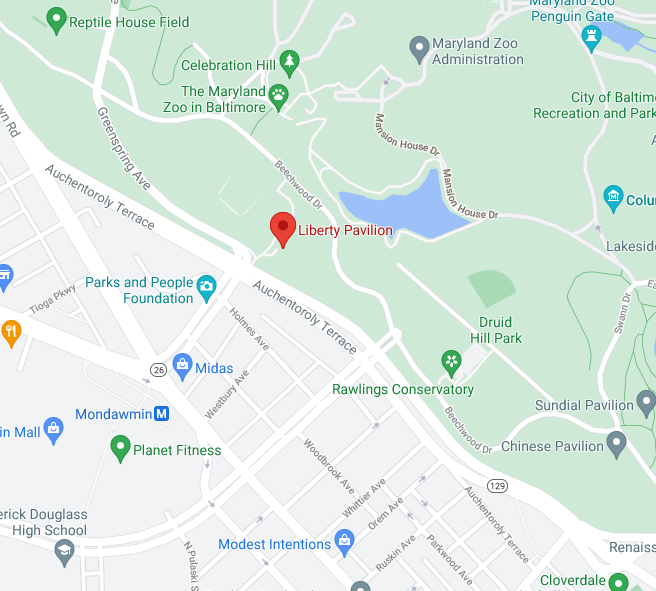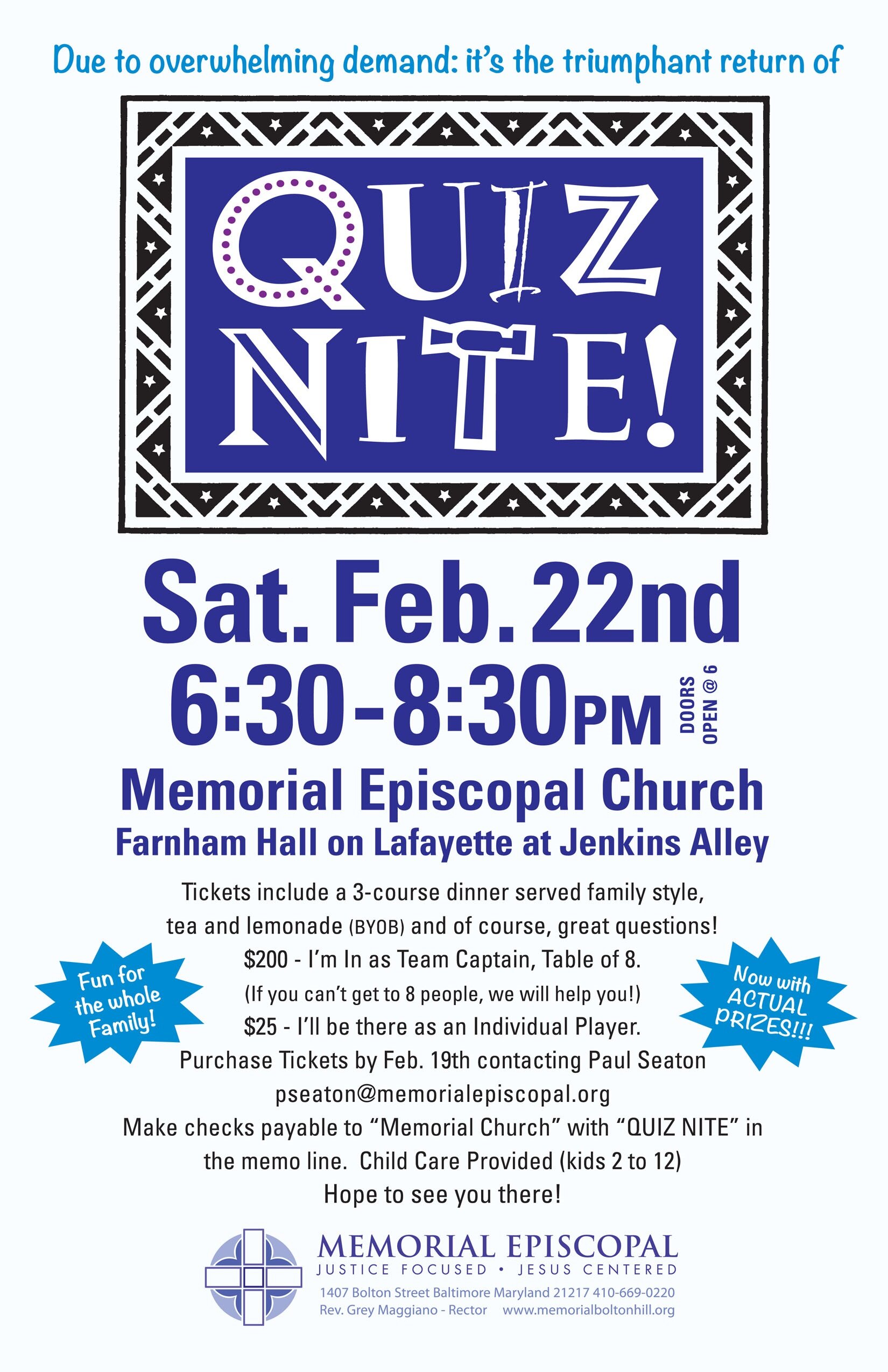Liturgy and Living
Ash Wednesday
Jazz Mass
Shrove Tuesday : Pancake Supper
Family Night Dinner February 19th
2020 Tri-Church Lenten Program
Is Heaven Real? Who gets to go? Do you really believe this? What about other religions? What about my cat?” When it comes to questions of Salvation - people have a LOT of questions. And often these questions keep them from engaging fully in the life of the Church or their life in Christ. This three part series will look at the Church’s view of salvation through three lens: 1) the beginning up until the reformation 2) the reformation through World War II and the Holocaust, and 3) the Cold War through the War on Terror. Each of these events drastically challenged how we think about salvation and God has given us ‘fresh eyes’ to seek to answer these questions. Join us at 6:30 for a simple meal and from 7-8 pm for some lively discussion!
The View from Bolton Street
This week in the Gospel we have some tough texts. Jesus says some things about hate, about adultery, about divorce, and about swearing — and for some of us it doesn’t feel like good news.
When we see something we don’t like there is a tendency to reject it. To say “Jesus didn’t mean that.” Or “This isn’t about me.”
But the Gospel is almost always about me. Or better stated that the Gospel is almost always about us.
You see the text this week is talking to us about how we are together. And it is not an accident that the audience is explicitly and intentionally men. Because these texts are not just about relationships, but they are about POWER.
The power we hold. The power we give to others. The control we let others have over us and the control that we maintain. In this Gospel Jesus reminds us that we must be careful with our power and not use it abuse or mistreat others.
We should remember in 1st century Palestine marriage was not about love or relationship it was about power and control. Maintaining economic, social or religious power and relationships. Marriage (and adultery) were controlled by men and the victims were always women.
The gospel opens with Jesus inviting people to not use the courts to solve their problems but instead to work it out amongst themselves. And he is speaking to connected, powerful men saying “stop suing your poor neighbors in court and work it out” because THE judge may not look as favorably on you as that judge.
The gospel closes with Jesus reminding us not to swear. But he isn’t talking about Four Letter words — instead he is talking about swearing oaths, and invoking a higher power in our claims for justice and restitution. Don’t tell your poor neighbor that GOD says they need to pay you back, just work it out. Don’t tell your spouse, your children, your friends, your neighbors that GOD is coming for them — instead see if you can work out a better solution. Let our yes, be yes and our no, no.
Why? Because in God’s house - all the power that sustains us in the world outside disappears. Inside the Church you are not the wealthy business owner, the high powered lawyer. You are no longer the harried parent, the overwork single mother, the grandparent or aunt or uncle trying to care for children that aren’t your own. You are not an adulterer. A tax cheat. A bad spouse or a bad parent. You are not any of those things the world has tried to put on you. You are no longer food insecure, housing insecure, or love insecure.
You are a child of God. And it is only on those terms that God sees you and that Memorial sees you.
Or at least hope to.
It is fair to say that this is an aspirational statement, right? Power and money and authority still hold a lot of sway in the wider church and in any human community. But at Memorial we seek to model a better way. And this is what Jesus is talking about in the Gospel this morning.
I hope it is a source of hope for you and a vision for what this place could be.
Strong City Baltimore Neighborhood Institute
We encourage you to sign up for the Strong City Baltimore Neighborhood Institute happening March 28. This is a one of a kind opportunity to gather with people from all over Baltimore working to make this city better in big and small ways. We are particularly honored that Steve Howard and Natalie Conway will be presenting about their story of reconciliation and helping other organizations and communities think about what they can do to break down barriers and heal divisions. Sign up by clicking HERE
The View from Bolton Street
“The State of the Union”
No not THAT Union. Though we might talk about that.
Today I am reflecting on the Union between the Christian and the Jewish Traditions. A Union that has been historically difficult, but today seeks a lasting, if fragile peace. As Post-Modern Christians in a city like Baltimore we may not think much about Anti-Semitism and the need for a union or covenant between Christians and Jews, but there is a lot that remains to be done and a lot we can learn from how peace has been achieved.
But first some of our own history. In our Anglican tradition, England was the First European Nation to seek to expel all Jewish residents in 1290. The founding document of Anglicanism after Rome, the 39 articles, counts as ‘accursed’ (Article XVIII) the Jewish people. It wasn’t till 1890 that Jews were allowed to be full participants in Public Life in England. During and After World War II, only 10,000 Jews were allowed into the United Kingdom and they made it illegal for Jews to migrate to then British controlled Palestine (now Israel). We certainly have not been good neighbors. Nor have we held up to our end of the covenant as ‘children grafted on to the branch’ as Paul describes us in Romans 11.
Yet today I am grateful to have good relationships with my colleagues in the Jewish Tradition. Episcopalians and Anglicans the world over participate fully and whole heartedly in inter-faith dialogue programs be they academic (like the ICJS in Towson) or Liturgical or Missional. By and large as a tradition, we recognize that we were in the wrong for almost a millennia, we recognize that the Jewish people do have a place in the land of Israel and a place in society the world over. Most importantly we recognize that we are co-inheritors of a story. Of God’s story. And though we may not tell it the same way we believe that the promise of God’s love and the promise of Salvation offered to us by our Lord is offered to both of us without preconditions.
But we still have a lot of work to do. I confess rarely do I think twice about scheduling a Saturday community event even though it is the Sabbath and many of our neighbors will be forced to make choices between their faith and their community to attend. I don’t always check the Jewish or Islamic religious calendars either. And as a tradition we still have a lot of harmful stereotypes around Jewish people that we have not fully examined or processed. We still have work to do. But there is trust to do that work.
I share about the state of that Union because it may help us consider the current state of our Union.
The President gave his customary address to a joint house of Congress and I confess I did not watch. Maybe for the first time in my life. I have read the speech, and I continue to stay involved in civic life, but it was a sad moment for me and maybe for you. Not because of the content or the rancor, or the tearing up of pages, but because of the lack of trust.
Their is no trust left in our union. Democrats don’t trust Republicans. Republicans don’t trust democrats. A lot of people don’t trust the government. And increasingly we don’t trust each other. We need to know whose side you are on. What team you play for. Whether you are trustworthy.
It took a World War and a Holocaust for the Christian world to recognize how much damage we had done to our Jewish brothers and sisters. 6 million Jewish people. Millions more of other backgrounds. And now, 70 or 80 years later, that trust is just now returning. And is fragile. Consider how much anti-semitism there is in the world. Consider how casually people you know will say things like ‘Well Israel shouldn’t exist.’ Or ‘What do the Jews need protection for anyway?’ We have trust. But it takes work.
But in our Union? Our bigger Union? We have very little trust. In the Gospel this week we are challenged to be light to the world. And when we shine a light, we know we see the shadows more clearly too. We can’t pretend that those shadows aren’t there. We can’t pretend that Trump will go away and suddenly we will like each other again. We have got to work to make it happen. To create trust. To build bridges. To forge relationships.
Because the alternative is very, very Dark.










